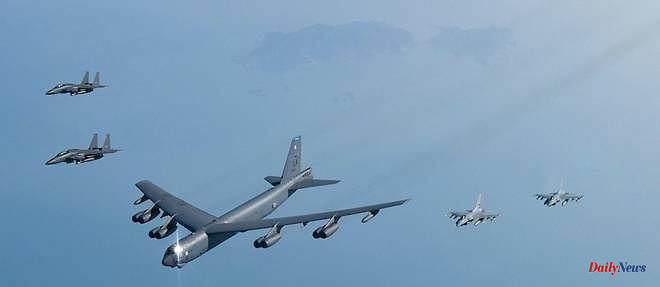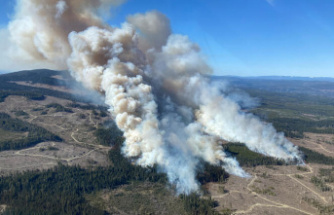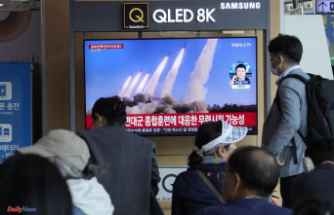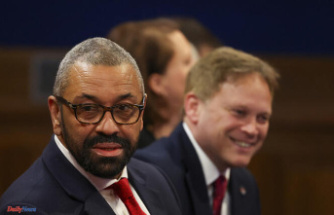South Korea and the United States began their largest joint military maneuvers in five years on Monday, despite threats from North Korea, which announced hours earlier that it had fired two cruise missiles from a submarine.
Pyongyang said its firing was aimed at testing its "nuclear deterrents in different spaces", while criticizing the "Freedom Shield" drills between US and South Korean forces, scheduled to last at least ten days in order to combat the growing threats from Pyongyang.
North Korea reported that "the two cruise missiles precisely hit the pre-determined target in the Eastern Sea of Korea," according to the official KCNA news agency, referring to the body of water also known as the Sea of Japan.
Current UN sanctions do not in practice prohibit Pyongyang from firing cruise missiles. However, tests relating to its nuclear arsenal are not permitted.
This test is linked to the fact that Seoul and Washington are "moving less and less covertly in their military maneuvers against" North Korea, according to KCNA.
The South Korean Joint Chiefs of Staff reported detecting the launch of at least one unidentified missile from a North Korean submarine on Sunday, adding that US and South Korean intelligence services are analyzing the facts.
Images broadcast on North Korean state media show a submarine, the "8.24 Yongung", a missile soaring skyward, as well as white smoke and flames.
Experts have expressed "significant doubts" about the progress of Pyongyang's submarine program. For Park Won-gon, a professor at Ewha University in Seoul, the transmitted images suggest that the missile was fired above the surface of the water.
"In this case, it is useless (to fire) from a submarine" because it is not stealthy, he observed for AFP.
The "Freedom Shield" drills "involve wartime procedures to repel potential North Korean attacks and conduct a stabilization campaign in the North," the South Korean military said.
The South Korean Joint Chiefs of Staff insisted that these exercises are "defensive (and) are based on a joint operational plan".
All such drills draw the ire of Pyongyang, which sees them as dress rehearsals for an invasion of its territory, and regularly warns against "overwhelming" action in response to them.
"North Korea is using missiles to (denounce) joint exercises," said Go Myong-hyun, a researcher at the Asan Institute for Policy Studies in Seoul.
"She wants to emphasize that the reason she is developing missiles is for self-defense purposes."
North Korea's foreign ministry also issued a statement on Monday criticizing "the Americans' vicious human rights racketeering", after Washington said it would convene a meeting at the UN this week on human rights abuses in Korea. North.
In 2022, the North called its status as a nuclear power "irreversible" and conducted a record number of ballistic tests in violation of UN resolutions.
On Friday, KCNA reported that Kim Jong Un had ordered his army to step up military maneuvers for "real war".
Washington has repeatedly reaffirmed its "unwavering" commitment to defending South Korea using "the full range of its military capabilities, including nuclear" and recently sought to reassure Seoul of their expanded deterrent capability to their allies.
South Korea, for its part, is seeking to appease public opinion that is rather worried about American commitments in terms of so-called extended deterrence, which, thanks to American military means, including nuclear weapons, can prevent attacks against the allies.
Although the official policy of the two countries towards the North has not changed, namely that the North Korean leader must give up his nuclear weapons and return to the negotiating table, experts believe that there is had a change in practice.
Washington has "effectively recognized that North Korea will never give up its nuclear program," defector An Chan-il, director of the World Institute for North Korean Studies, told AFP.
"Freedom Shield" will therefore be "very different -- both qualitatively and quantitatively -- from previous joint exercises that have taken place in recent years", he added.
Pyongyang is likely to use the "Freedom Shield" as an "excuse" to invest more in its banned weapons programs, according to Chun In-bum, a retired South Korean army general.
“Further missile launches, with variations in style and range, and even a nuclear test are to be expected. Further acts of intimidation by North Korea would not be surprising. "
13/03/2023 06:44:54 - Seoul (AFP) © 2023 AFP












